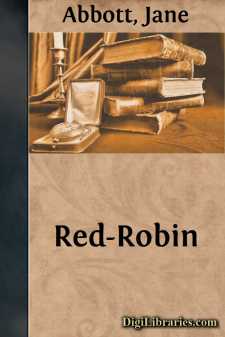Categories
- Antiques & Collectibles 13
- Architecture 36
- Art 48
- Bibles 22
- Biography & Autobiography 815
- Body, Mind & Spirit 144
- Business & Economics 28
- Children's Books 18
- Children's Fiction 14
- Computers 4
- Cooking 94
- Crafts & Hobbies 4
- Drama 346
- Education 58
- Family & Relationships 59
- Fiction 11829
- Games 19
- Gardening 17
- Health & Fitness 34
- History 1378
- House & Home 1
- Humor 147
- Juvenile Fiction 1873
- Juvenile Nonfiction 202
- Language Arts & Disciplines 89
- Law 16
- Literary Collections 686
- Literary Criticism 179
- Mathematics 13
- Medical 41
- Music 40
- Nature 179
- Non-Classifiable 1768
- Performing Arts 7
- Periodicals 1453
- Philosophy 65
- Photography 2
- Poetry 896
- Political Science 203
- Psychology 44
- Reference 154
- Religion 515
- Science 126
- Self-Help 85
- Social Science 82
- Sports & Recreation 34
- Study Aids 3
- Technology & Engineering 59
- Transportation 23
- Travel 463
- True Crime 29
Our website is made possible by displaying online advertisements to our visitors.
Please consider supporting us by disabling your ad blocker.
Keineth
by: Jane Abbott
Description:
Excerpt
CHAPTER I
KEINETH'S WORLD CHANGES
Keineth Randolph's world seemed suddenly to be turning upside down!
For the past three days there had been no lessons. Keineth had lessons instead of going to school. She had them sometimes with Madame Henri, or "Tante" as she called her, and sometimes with her father. If the sun was very inviting in the morning, lessons would wait until afternoon; or, if, sitting straight and still in the big room her father called his study, Keineth found it impossible to think of the book before her, Tante would say in her prim voice:
"Dreaming, cherie?" and add, "the books will wait!"
Or, if father was hearing the lessons, he would toss aside the book and beckon to Keineth to sit on his knee. Then he would tell a story. It would be, perhaps, something about India or they would travel together through Norway; or it would be Custer's fight with the Indians or the wanderings of the Acadians through the English Colonies in America, as portrayed in Longfellow's Evangeline.
But for three days Keineth had had neither lessons nor stories—she had not even wanted to go out into the park to walk. For her dear Tante, with a very sad face, was packing her trunks and boxes, and Daddy had gone out of town.
To-morrow the little woman was going to sail on a Norwegian boat for
Europe. The trip seemed to Keineth to be particularly unusual because
Tante and Daddy had talked so much about it and Tante had waited until
Daddy had gotten her some papers which would take her safely into
Europe. So much talk and the important papers made it seem as though
she was going very far away. Perhaps she did not expect to come back to
America—she stopped so often in her work to kiss Keineth!
Keineth could not remember her own mother, she had died when Keineth was three years old; and as far back as she could remember Tante had always taken care of her. These three, the golden-haired delicate child, the serious-faced Belgian gentlewoman, who had given up a position in one of New York's schools to go into John Randolph's household, and the father himself, living for his work and his daughter, led what might seem to others a very strange life. The man had kept his home in the old brick house on Washington Square in lower New York even after the other houses in the square around it gradually changed from pleasant, neat homes to shabby boarding-houses or rooming houses with broken windows and railless steps; to dusty lofts; to cellars where Jews kept and sorted over their filthy rags; to dingy attic spaces where artists made their studios, turning queer, dilapidated corners into what they called their homes. The third story of the Randolph house had been let for "light housekeeping apartments"; Keineth herself had helped tack the little black and gilt sign at the door. The tenants used the side door that let into the brick-paved alley. Keineth had always felt a great pride in their home—it was always neatly painted, their steps shone, and there were no papers collected behind their iron gratings....




